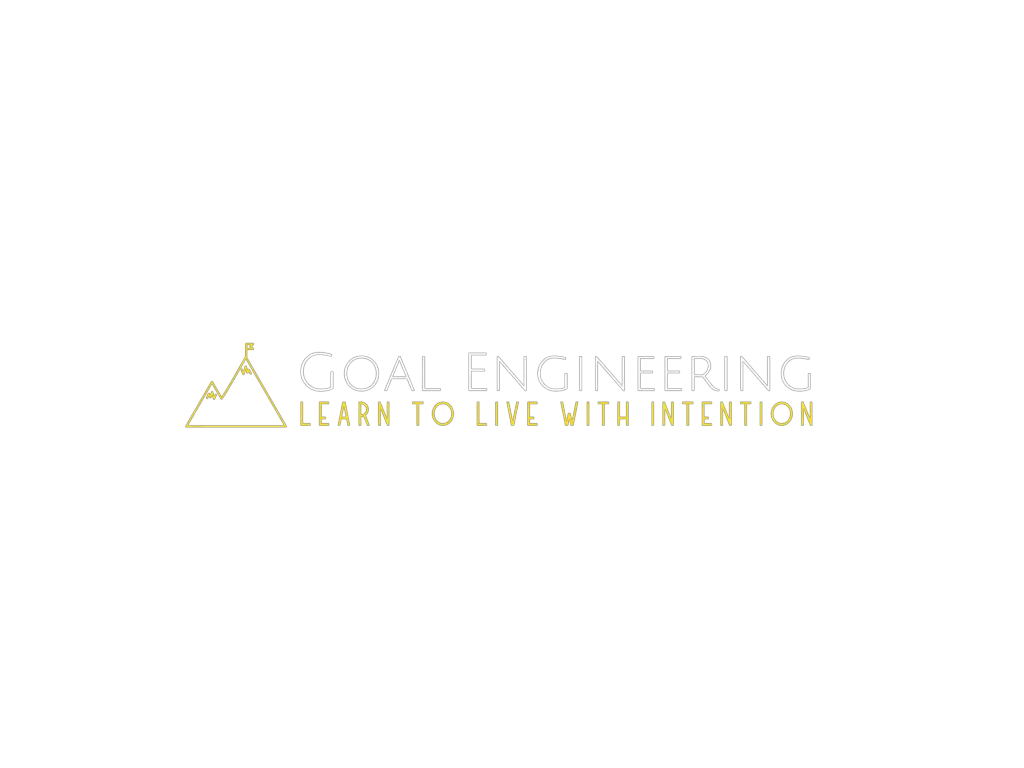Over the last few weeks, I’ve been using the Notes app on my phone to journal about my goals. I’ve found that what I learn about myself and how it helps me grow is only as good as the questions I ask myself. That’s why today we’re getting into what questions to ask when setting goals.
To set the best goals and achieve them, you need to ask yourself these five questions:
- What do I want to achieve and why?
- How will I divide my goal into manageable milestones?
- What action steps will lead me to achieve my goal?
- How will I track my progress?
- What will I do when I don’t feel like working on my goal?
When I first began preparing this article, I had ideas for nearly 20 questions. As I looked through the list though, I realized that nobody’s got time for that many questions.
And even better, I noticed that only five of the questions really mattered.
If you can put in the effort to answer these questions thoroughly and precisely, I’m confident that you’re going to set the right goals and be confident enough in them to make you stick to them until you accomplish them.
I’ll give reasons why each question is important and a framework to help you answer it efficiently. And a few sub-questions that can help.
Here we go!
What Do I Want to Accomplish and Why is it Important to Me?
The first step in the goal-setting process is finding the right goals for you. If you don’t figure out what you want, you’ll never reach your dreams, just like the Cheshire Cat explains to Alice in Alice in Wonderland.
Plus, you need to spend some time making your goals meaningful to you. That’s how you unlock the power of intrinsic goals.
Start by organizing your thoughts into the four pillars of life:
- Spiritual
- Relationships
- Finances
- Health
You can learn more about these areas of life to set goals in right here. Every goal you set in life falls into one of these areas.
It’s best to only have one goal in each area at a time so you can maximize your output. If you were to divide your time between a dozen disorganized goals, you’d get nowhere, just like Greg McKeown explains in his book Essentialism.
To find your ambitions in each of these areas of life, write 5-6 ideas in each area, or about 20-25 goals in total. Then ask yourself this question from The ONE Thing for each area:
“What’s the ONE Thing I can do such that by doing it everything else will be easier or unnecessary?” — Gary Keller
Also, consider how you feel thinking about these goals. Do they excite you or are you just doing them for somebody else or because you think it’s a good idea?
Take the time necessary to figure out what you want and you’ll be rewarded with maximum motivation and fulfillment while working on your goals.
I know it works this way because I’ve been asking myself this question for the last five years.
What Quarterly & Weekly Milestones Do I Need to Reach On The Way?
“There is only one way to eat an elephant: a bite at a time.” — Desmond Tutu
Once you have your dreams figured out the second step in the goal-setting process is to make a plan to achieve them. This question is crucial because, well, let’s just let one of my favorite quotes explain it:
“A goal without a plan is just a wish.” – Antoine de Saint-Exupéry
Making a plan isn’t as hard as you might think. All you have to do is break the goal down into smaller steps that you can track across each quarter of the year and each of the 12 weeks within the quarter.
If I wanted to save $500 a month, for instance, I’d first figure out my timeline. A year might seem like a long time to do this, but it is attainable, so let’s go with that.
Then, I’d break it down into four parts, one for each quarter of the year. So $500/4 = $125 additional saved per month by the end of each quarter.
Next, I’d divide that goal across 12 weeks. That’d be $125/12 = $10.42 additional saved per week each quarter.
Now I know that I need to find a way to eliminate roughly $10 of spending from my budget each week so that money can go into savings instead. Or earn more money.
Oh and why 12 weeks? Well, check out The 12 Week Year and you’ll see why.
What Action Steps, If I Did Them Every Day for a Year, Would Nearly Guarantee Success?
“Action is the foundational key to all success.” — Pablo Picasso
This is possibly the most crucial question out of all of them. That’s because without putting in the work, nothing happens.
When you figure out how to stay consistent across weeks, months, and years, you’ll accomplish things you’d never dreamed possible.
I know because I’ve done it myself. It’s how I’ve got a family, a house, and an engineering license, and how I’ve run a marathon and completed graduate school.
Think of your own goals and ask yourself this question. You might realize that if you were to…
- Exercise for 30 minutes
- Read a book for 30 minutes
- Spend quality time with another human for 30 minutes
- Work on a side hustle for 30 minutes
…every day for a year, you’d inevitably be more fit, mentally healthy, socially connected, and financially stable. And you’d be happy and fulfilled. I know because, again, I’ve seen it work like this in my own life.
The truth is that “experts” or “gurus” want to sell you some nifty “hack” that they say will get you healthier or richer in less time.
But there isn’t and never will be any substitute for good old-fashioned hard work. Combined with working smart by carefully planning your goals and action steps, as we’ve already talked about.
Ask yourself this question for each of your goals, then do what it takes to make it happen consistently, every day, for a whole year. Check out this article for a way to make it easier.
How Will I Track My Progress?
Research shows that those who track their goals are more likely to stick with them. And the more frequently you track your goals, the more that likelihood increases.
That’s why you need to find a tracking method that works for you. Here are some options to consider and try:
- App
- Pen & paper
- Spreadsheet
- Physical journal
- Notes on your phone
If this seems overwhelming, just pick one to start with and see how you like it. I’d recommend notes on your phone because that’s easiest. Then, as you learn what works for you, you can try more advanced methods like journals or spreadsheets.
I’ve been tracking my goals with a spreadsheet for the last four years and it’s done wonders to help me stick to my goals. I also do some daily tracking on my phone by journaling about how my progress is going and that helps immensely as well.
It can be as simple as writing down what you’ve done each day. Include what you’ve learned about your goal, such as what makes it easier and what struggles you’re having.
Then, at the end or beginning of the week, spend an hour to review your progress and adjust your goals as needed.
What Will I Do About Roadblocks, Setbacks, and Discouragement?
I’ve been setting goals for a long time and I wish I had thought to ask this question sooner. I now include it as part of my tracking and regularly journal about it, but I didn’t always do so.
Now, because I have this outlet to quickly diagnose and solve problems that arise while working on my goals, I’m hundreds of times faster at accomplishing my dreams than ever before.
You need to consider all three of the options in this question because doing so covers nearly all of the struggle and overwhelm that comes when you’re in the middle of it:
- Roadblocks are what will make it hard for you
- Setbacks are times you fail or unexpected life events
- Discouragement is when you don’t want to work on your goals
You eliminate roadblocks by planning ahead. I might sleep in my workout clothes or set my weights out so I can exercise first thing in the morning, for example.
When you get up and feel tired and sore from yesterday’s workout, mentally preparing for discouragement will help you. For me, this means pushing through and doing it anyway because I know that only once I start will I feel like doing it.
You can’t always plan for setbacks, but you can train your mind to handle them better. Every time you don’t feel like working on your goals and you do it anyway, you’re prepping your mind for challenges that you wish wouldn’t have happened. And making it easier to continue to work hard through them.
Wrapping Up
Here are the five best questions you need to ask yourself when setting goals:
- What do I want to accomplish and why?
- How will I break my goal down into weekly and quarterly milestones?
- What action steps, when I am consistent with them, will lead me to achieve my goal?
- How will I track my progress?
- What will I do when I don’t feel like working on my goals?





